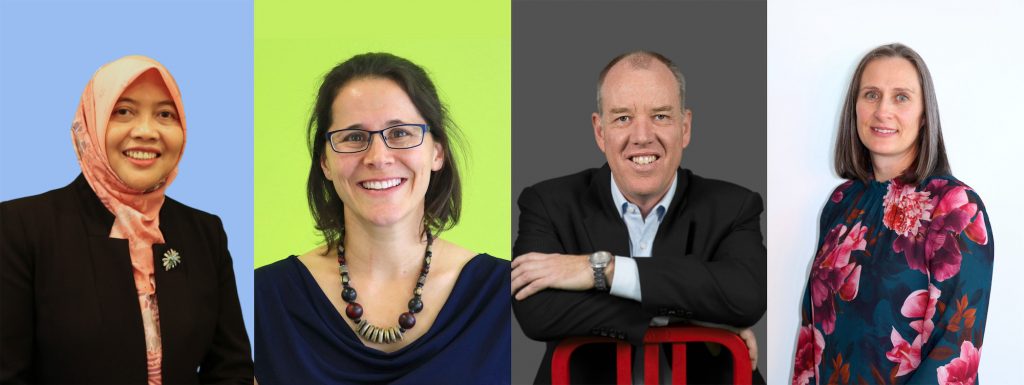
We are thrilled to announce that Professor Tom Lowrie, Associate Professor Ilyse Resnick, Dr Tracy Logan, and Dr Sitti Patahuddin have been awarded a 2023 Discovery Project grant from the Australian Research Council (ARC).
The team won this prestigious grant for their project proposal titled ‘Spatial intervention: An enduring model to build mathematics achievement’.
As one of only twelve research projects awarded in the field of Education, this award highlights the team’s unique and profound contribution to Education research in Australia. The three-year ($344,687) project will complement the SERC goal of supporting spatial skill development as a mechanism for improving mathematics achievement for all children. This project will be the first to assess the effectiveness and sustainability of longitudinal spatial intervention in classrooms.
Application summary
“Strong evidence links spatial skills with mathematics achievement, but the reasons remain theoretical. The aim of this project is to empirically establish the mechanisms connecting spatial reasoning with mathematics performance, including longitudinal interventions to provide evidence for long-term impact. The project is significant given the heightened concern surrounding Australian students’ performance on national and international assessments. Expected outcomes are a detailed understanding of the ways enhanced spatial skills improve mathematics performance, and empirically tested intervention programs. Anticipated benefits include improved accessibility of mathematics education and sustained mathematics performance for all students.”
Project Team
Professor Tom Lowrie led the first classroom-based study to establish the transfer of spatial training to mathematics learning in primary school. He has since implemented large-scale spatial programs across pre-school (through the ELSA program) and primary school (Lowrie et al., 2019, 2021). These programs were developed using customised spatial pedagogy aligned to the EYLF (Lowrie & Larkin, 2020) and Australian Curriculum (Lowrie et al., 2018). In addition, he has published over one hundred peer-reviewed papers in the past ten years, disseminated across mathematics and STEM education, sociology, assessment, learning sciences, developmental- and cognitive-psychology disciplines. He has delivered keynote addresses in eleven countries across Australasia, Europe, North America, and Asia.
Associate Professor Ilyse Resnick’s rigorous training at the Spatial Intelligence and Learning Center (the international hub for spatial cognition research, currently based at Northwestern University, Chicago) has uniquely positioned her to be at the forefront of interdisciplinary work in spatial learning. Resnick’s cognitive science background will be critical in determining the affordances of spatial reasoning tools (e.g., gesture, analogy) and cognitive science principles of learning and memory (e.g., the role of spatial working memory) to support spatial learning. Resnick is the recipient of a 2021 ARC DECRA (DE210101881), focusing on spatial reasoning in the early years.
Dr Tracy Logan has been working at the intersection of spatial reasoning and mathematics education for 7+ years, working closely with Tom Lowrie across three Discovery projects and the ELSA program. In addition, Logan’s independent work includes co-ordination of two, school-based collaborative research programs between UC and the ACT Department of Education and Training under the Affiliated Schools banner and UC based research improving mathematics anxiety and engagement in pre-service teachers. Logan’s background in education will be critical in aligning the spatial reasoning program with cutting-edge pedagogy in mathematics education.
Dr Sitti Patahuddin’s research expertise in teacher professional development, lesson design and classroom instruction analysis make her role a vital part of the implementation and sustainability of the program. She has contributed to the development and implementation of the ELPSA pedagogical framework that has been implemented in Australia and Indonesia and will be used as a basis for the spatial pedagogy program. Patahuddin’s leadership in a Government Partnership for Development Australia-Indonesia Project (with Lowrie 2014 – 2018), demonstrates her ability to deliver large scale projects with enduring impact. Patahuddin’s successful mentorship of female mathematics teachers/educators from low SES areas in Indonesia, enhanced by the use of technology, was instrumental in the development of a community of practice to provide ongoing support for educators.
